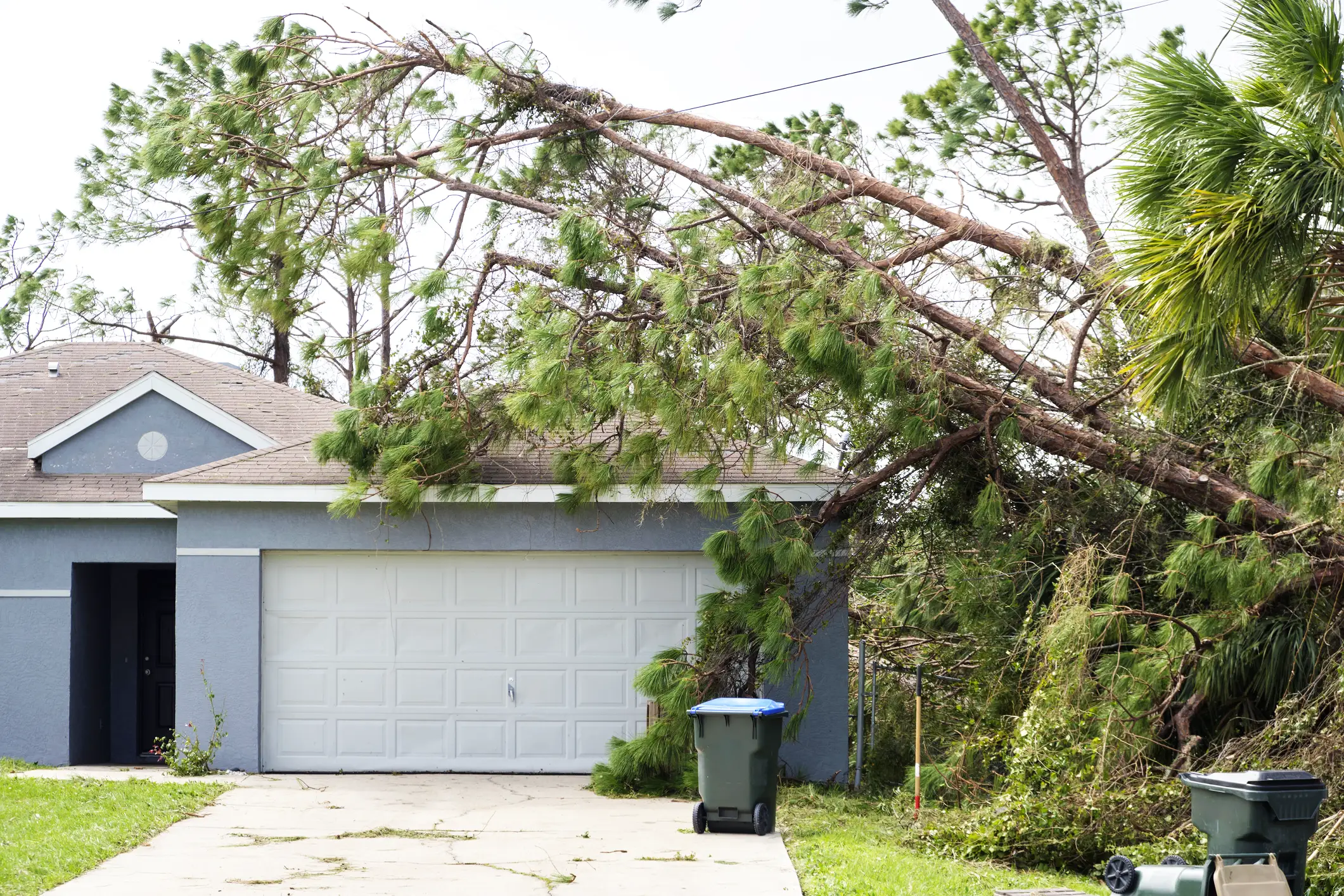What Can Cause You to Lose Equity?
Published on May 30, 2024 | 7 Minute read

Melanie
Ortiz Reyes
Content Specialist
Equity represents the value that an owner has in an asset after deducting any liabilities associated with it. For homeowners, it’s the difference between the market value of the home and the outstanding mortgage balance. For business owners, equity is the difference between the value of the business and its liabilities. Building equity is often seen as a key to financial stability and growth, but various factors can erode this value. Understanding these factors is important to safeguarding your investment and ensuring long-term financial health.
1. Market Fluctuations
One of the most significant factors that can cause you to lose equity is market fluctuation. Real estate and stock markets are inherently volatile, influenced by a myriad of factors including economic conditions, interest rates, and geopolitical events.
Real Estate Market Downturns:
During a housing market downturn, property values can plummet. If the market value of your home drops below the outstanding balance on your mortgage, you end up with negative equity, also known as being "underwater."
Stock Market Volatility:
For business owners, market volatility can reduce the value of their business. Declining stock prices can erode shareholder equity, particularly if the business is publicly traded.

2. Rising Interest Rates
Interest rates have a direct impact on the value of equity. When interest rates rise, the cost of borrowing increases. This can have several adverse effects:
Increased Mortgage Payments:
Higher interest rates can lead to increased mortgage payments for homeowners with adjustable-rate mortgages (ARMs). This additional financial burden can lead to difficulty in maintaining mortgage payments, potentially resulting in foreclosure, which would eliminate any remaining equity. Here's how to qualify for an ARM.
Reduced Business Valuations:
For businesses, higher borrowing costs can reduce profitability and, consequently, the overall valuation of the business. This decline in value can erode the equity held by business owners.
3. Economic Recessions
Economic recessions can have a devastating impact on equity. During a recession, consumer spending typically decreases, which can lead to lower revenues for businesses and reduced property values.
Decreased Property Values:
In a recession, the demand for real estate often falls, leading to lower property prices. Homeowners may see the value of their properties decline, reducing their home equity.
Business Decline:
Businesses may face declining sales and profits during a recession, leading to reduced company valuations. This impacts both publicly traded and privately held companies, eroding owner and shareholder equity.

4. Poor Financial Management
Poor financial management can significantly diminish equity. This encompasses a range of issues, from personal finance missteps to inadequate business financial planning.
Personal Finance Mismanagement:
For individuals, accruing excessive debt, failing to budget properly, or neglecting to save can lead to financial strain. High levels of personal debt can result in using home equity to cover liabilities, reducing overall equity.
Business Financial Mismanagement:
Businesses that do not manage cash flow effectively, take on excessive debt, or fail to invest wisely can see their equity diminish. Ineffective management practices can lead to insolvency, further eroding business equity.
5. Legal Issues and Liabilities
Legal problems can pose a significant threat to equity. Lawsuits, fines, and other legal expenses can drain financial resources rapidly.
Homeowners:
Homeowners can face legal issues such as disputes over property boundaries, unpaid property taxes, or issues arising from home improvements done without proper permits. Such legal battles can be costly and may force the sale of the property, potentially at a loss.
Business Owners:
Businesses are often at risk of lawsuits, whether from customers, employees, or other businesses. Legal settlements and the associated costs can significantly impact a company’s financial health, reducing its equity.

6. Natural Disasters
Natural disasters such as hurricanes, earthquakes, floods, and wildfires can cause substantial property damage, leading to a loss of equity.
Property Damage:
If a natural disaster severely damages or destroys your property, the cost of repairs may exceed insurance coverage, leading to a significant loss in property value. Even with insurance, the market value of a disaster-affected area might drop, reducing equity.
Business Disruption:
For businesses, natural disasters can disrupt operations, damage assets, and result in loss of income. The financial strain from such events can decrease the overall value of the business, eroding equity.
7. Over-Leveraging
Over-leveraging occurs when too much debt is used to finance assets. While leveraging can amplify returns in favorable conditions, it also increases risk.
Mortgage Over-Leveraging:
Homeowners who take out large home equity loans or lines of credit against their property can find themselves over-leveraged. If property values fall or interest rates rise, the debt burden can become unsustainable, leading to foreclosure and loss of equity.
Business Over-Leveraging:
Businesses that rely heavily on borrowed funds for expansion or operations can face severe equity erosion if revenue declines or if they encounter difficulties in meeting debt obligations. High debt levels increase financial vulnerability, especially in economic downturns.

8. Poor Investment Choices
Investing in assets that underperform can lead to a loss of equity. This can happen with real estate investments, stock purchases, or business ventures.
Real Estate:
Purchasing property in a declining neighborhood, overpaying for property, or investing in real estate without proper due diligence can result in significant losses. If the property’s value falls, so does your equity.
Business Ventures:
Starting or investing in a business that fails to meet expectations can lead to substantial financial loss. Poor business performance reduces the value of the investment and the equity held.
9. Depreciation
Depreciation refers to the loss of value of an asset over time. While it is often associated with physical assets, it can affect equity in various contexts.
Homeowners:
Homes require ongoing maintenance and improvements to maintain their value. Neglecting necessary upkeep can lead to depreciation in the property’s value, reducing equity.
Businesses:
For businesses, assets such as equipment and vehicles lose value over time. Accounting for depreciation is crucial in understanding the true value of business assets and the equity held.

10. Inflation
While moderate inflation is normal, high inflation can erode purchasing power and affect equity.
Homeowners:
High inflation can lead to increased costs of living and higher interest rates, impacting mortgage affordability. It can also affect property values negatively in some cases.
Businesses:
Inflation can increase operational costs, reducing profit margins and the overall value of the business. This can lead to a decrease in business equity.
Mitigating the Risk of Losing Equity
Understanding the various factors that can lead to equity loss is the first step in protecting your investments. Here are some strategies to mitigate these risks:
Diversify Investments:
Diversification can help spread risk. By investing in a variety of asset classes, you can reduce the impact of a downturn in any one market on your overall equity.
Maintain Adequate Insurance:
Ensure that you have sufficient insurance coverage for your home and business to protect against natural disasters and other unforeseen events.
Monitor Market Conditions:
Stay informed about market trends and economic indicators. This will help you make timely decisions regarding buying, selling, or holding assets.
Prudent Financial Management:
Effective budgeting, reducing unnecessary debt, and maintaining an emergency fund can help protect your equity. For businesses, this includes effective cash flow management and strategic planning.
Seek Professional Advice:
Consulting with financial advisors, real estate experts, and legal professionals can provide valuable insights and help you make informed decisions to protect and grow your equity.
Equity is a valuable asset that requires careful management and protection. By understanding the factors that can lead to equity loss and implementing strategies to mitigate these risks, you can safeguard your financial future and maximize the value of your investments.